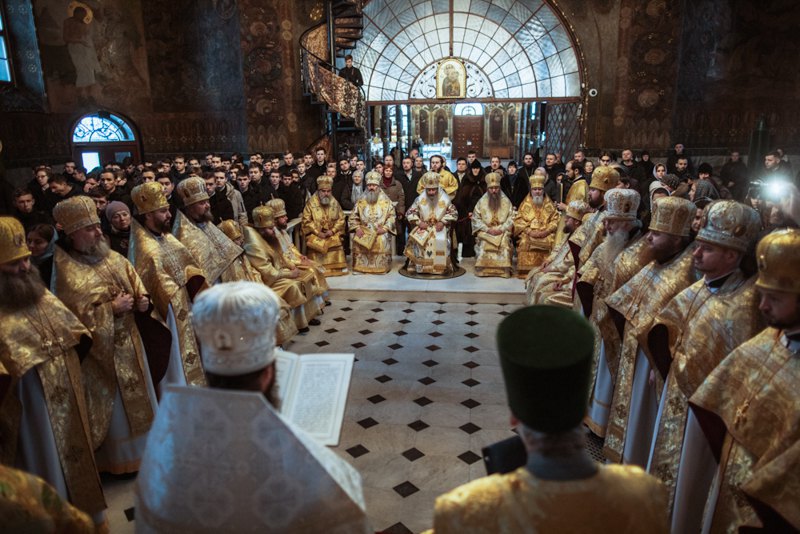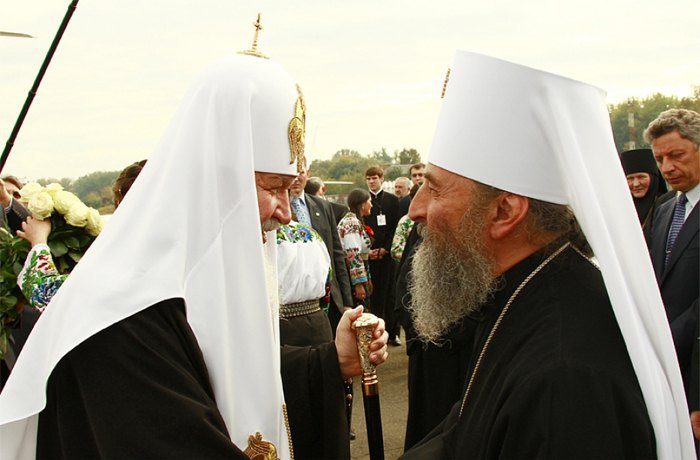
At the time of the full-scale invasion, the head of the Ukrainian Orthodox Church of the Moscow Patriarchate (UOC-MP), Metropolitan Onufriy, was in his native Bukovyna, but immediately returned to Kyiv and made a statement.
"When on 24 February, Metropolitan Onufriy condemned the Russian invasion, it was such a shocking statement. He spoke about the sin of Cain, who killed his brother. That is, it was completely unexpected for him, as well as for Abel, who was killed by his own brother. Obviously, he considered the Russians brothers, obviously, he had some signals that there would be no invasion. Many speakers of this church spoke about this. Of course, he could not but react to the despair of those priests, bishops, who were under fire. He could not but react to the fact that they stopped blessing the name of Patriarch Kirill during the liturgy in one diocese after another. First in Sumy, then in many other dioceses.
All this happened in the first days of the war. But gradually, it seems to me that the hierarchy – I'm talking now about the hierarchy of this church – gradually recovered, and in their rhetoric, the Orthodox Church of Ukraine and Patriarch Bartholomew became the main enemy again," explains the newly appointed (in mid-December) head of the State Service for Ethnic Policy and Freedom of Conscience, Viktor Yelenskyy. Check his first big interview here.
One of the most insightful and prominent Ukrainian theologians, Kyrylo Hovorun, fully validates Yelenskyy's opinion. Interestingly, we recorded this interview on the day when the first of the bills on the complete ban of the UOC-MP was submitted to parliament, and shortly before the liberation of Kyiv Region, which OCU leader Metropolitan Epifaniy toured almost entirely with the military.
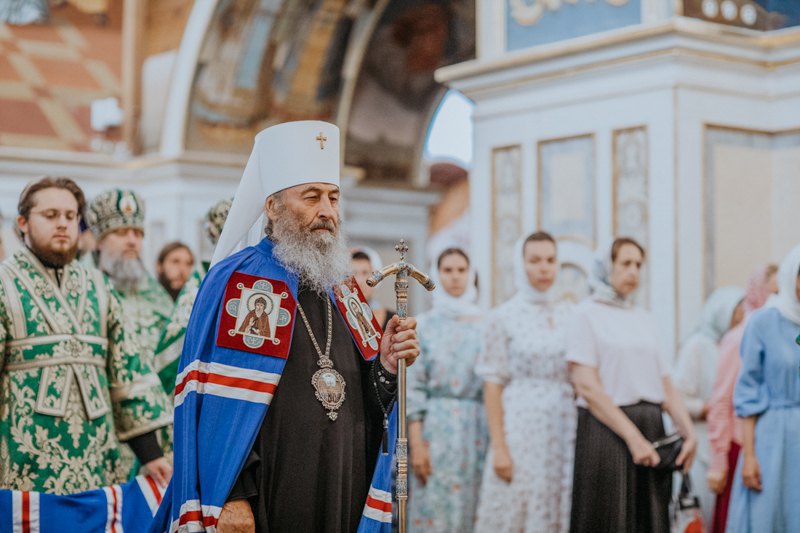
Sometimes they reached the liberated towns (the same Borodyanka) even earlier than the president in order to support the exhausted people and serve the first masses for the dead at mass graves. Epifaniy, like Zelenskyy, remained in Kyiv, although in the first days of the war there were reports that Russia intends to attack St. Sophia of Kyiv, and his residence – St. Michael's Monastery – was repeatedly stormed by enemy subversive groups.
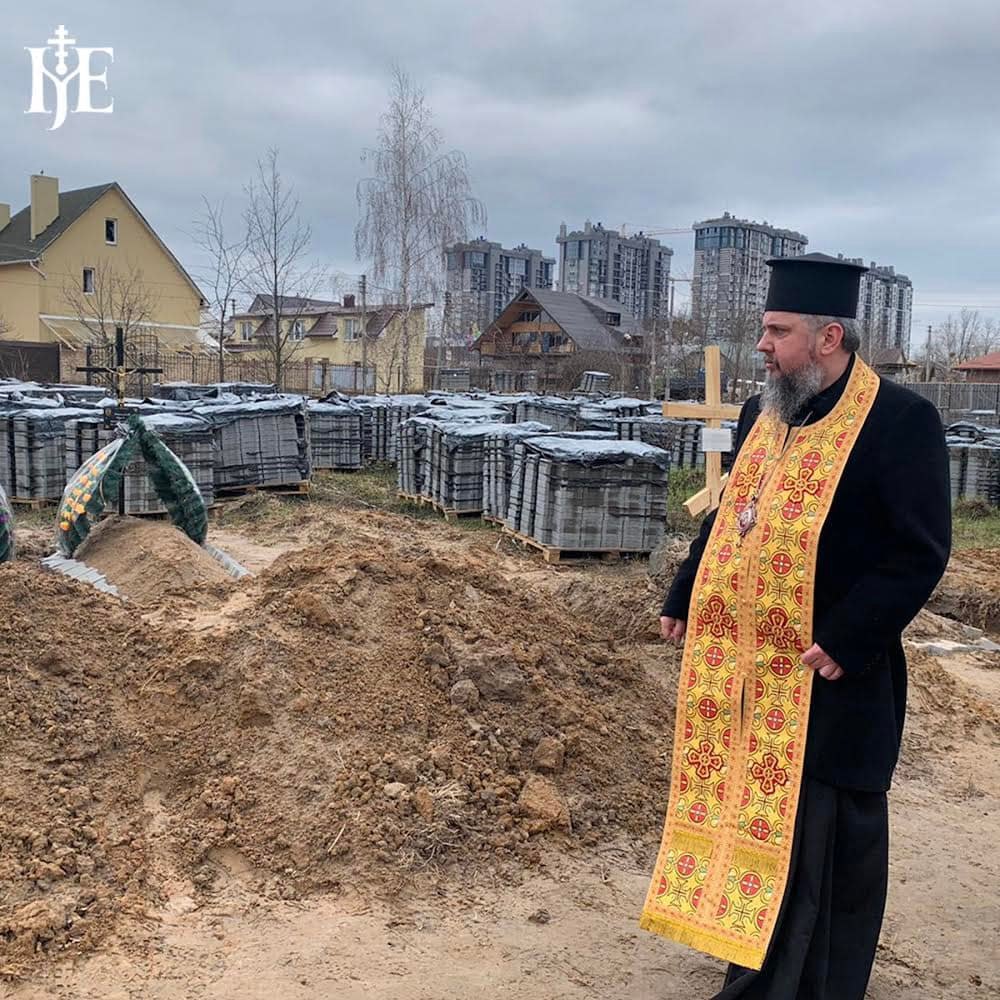
Meanwhile, even after 24 February, most UOC-MP churches did not stop commemorating Patriarch Kirill (turning a blind eye to how he blessed Russian generals to kill Ukrainians), did not abandon the Russian language at services, and often spoke about the "fratricidal" war.
This outraged, first of all, the pro-Ukrainian, patriotic priests and parishioners, who still number in hundreds of thousands in the MP. Not fanatics of the "Russian world", but really decent religious Ukrainians. Why do they not join the OCU, you may ask?
The question is fair, difficult, and therefore there is no unambiguous answer to it. Each situation must be looked at separately. After all, the church is primarily about the community of believers.
I mean that it is categorically wrong to judge everyone by the same yardstick, claiming that each and everyone in the MP is a devil. No, it is not. Absolutely not.
In mid-spring, Ukraine learned the name of Father Andriy Pinchuk, a simple rector of a church in the village of Voloske in Dnipropetrovsk Region. He initiated and secured the signatures of more than 400 colleagues under the appeal to Ecumenical Patriarch Bartholomew with an appeal for the Pentarchy to condemn Gundyaev for inciting hatred with ideas of the "Russian world".
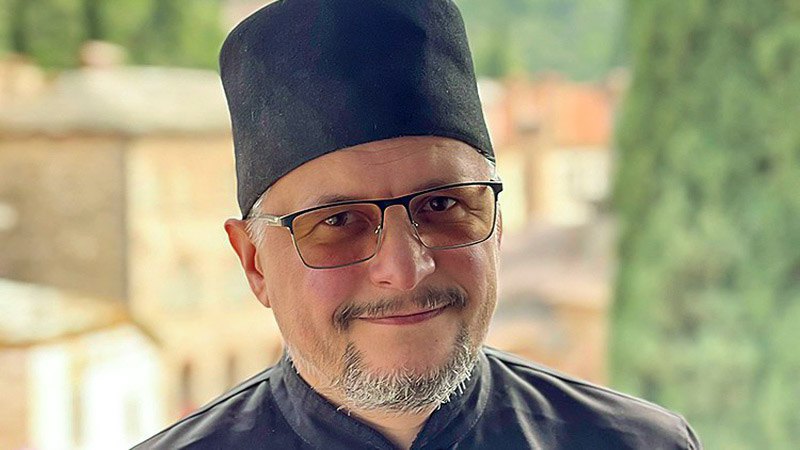
Yes, yes, the same Pentarchy court.
The problem is that, as I've already mentioned, Father Andriy's native UOC-MP broke off communication with Constantinople, following the suit of the Russian Orthodox Church (ROC), but the gesture was rather symbolic.
"There are already too many of us, our hierarchy will not be able to ignore us," said Andriy Pinchuk in an interview with LB.ua.
On 27 May, the UOC-MP held a Council meeting in Feofaniya (i.e. in the residence of Metropolitan Onufriy. This is an important detail), at which it announced that it was no longer the MP and removed all references to the ROC from its statute.
The decisions of the Council were prepared personally by Metropolitan Onufriy, and for many of those present they were an absolute surprise.
In particular, Vadym Novynskyy and Pavlo (Lebid) were indignant, saying the break from Moscow is a "split" and asking "how do we then differ from the Kyiv Patriarchate". And odious Luka of Zaporizhzhya even threatened to leave with his entire delegation (hoping to ruin the quorum).
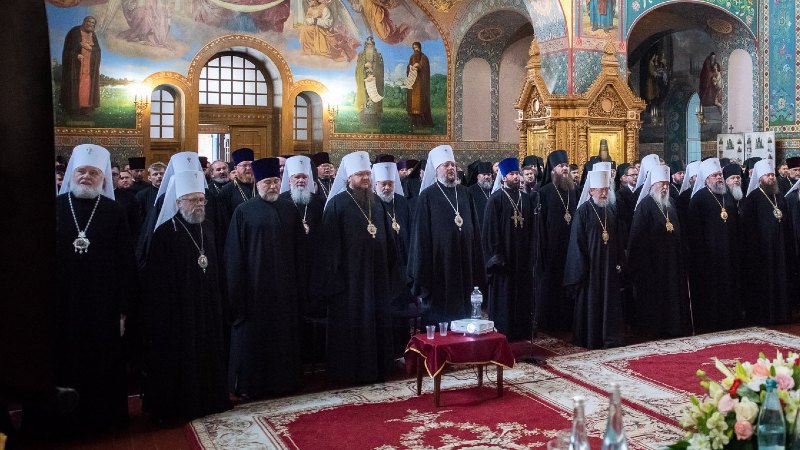
The UOC (not of the Moscow Patriarchate) defined its new status as an "independent church", referring to the missive of Moscow Patriarch Alexy II (Ridiger), issued to the head of the Kyiv See Filaret (Denysenko) back in 1990.
However, what initially looked like a breakthrough and a real step forward, later turned out to be a banal flop.
Firstly, the amendments to the Statute were not officially published for a very long time. Secondly, if it were really about some new status, Metropolitan Onufriy should have sent the so-called peace missives to the heads of other churches. He has not done this so far. And it is clear that he will not do it at all.
But this is not the most important thing. What is important is the fact that in canon law, to which all world Orthodoxy is subject, there is no term "independent church". Autocephalous, autonomous - yes, but definitely not independent (the UOC cannot grant autocephaly to itself).
As for the 1990 missive, it did provide for broad rights in the management and administration of the Kyiv church, but this is not synonymous with independence.
Thus, from the canonical point of view, the UOC (not of the MP) was, is and remains part of the Russian Orthodox Church (and Metropolitans Onufriy and Antoniy (Pakanych) are members of the Holy Synod of the Russian Orthodox Church). And any novice seminarian will confirm this to you.
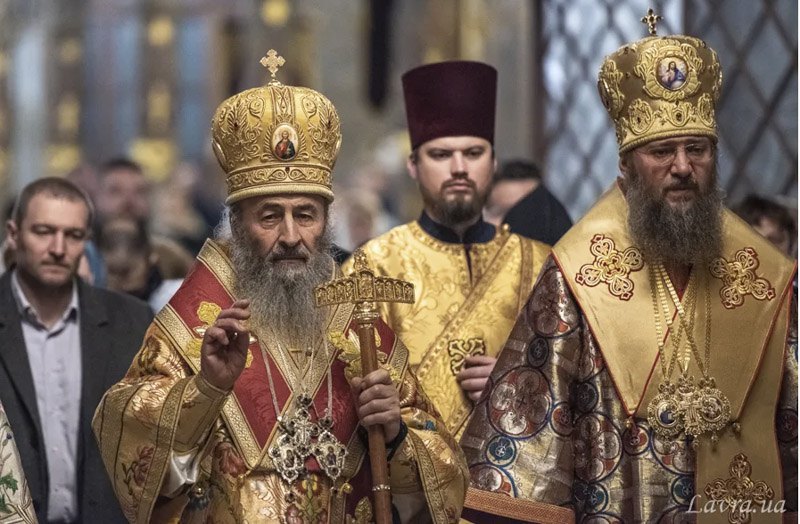
The Council convened on 27 May for the following purposes:
- to allow the dissatisfied to let off steam;
- to avoid the law of 2018, according to which religious organizations, whose administration centre is located in the territory of the aggressor state, must mark this in their name accordingly.
And that is it. The supreme clergy had the following sentiment: let the war end, and depending on how it ends, we will deal with it. The UOC (not of the MP) hung in the gray zone, in the middle of nowhere.
It is significant that Moscow's reaction to these events was quite lenient.
Moreover, the very next day after the Council, the Crimean dioceses declared that they did not agree with its decisions and asked Moscow to take them under its direct omophorion (subordination). Kyiv did not even try to protest or express indignation. Not a peep.
***
During the summer, transitions from the UOC (not of the MP) to the OCU became widespread (intensified since March). Sometimes five-six parishes would move in a day. Now, for example, there is one UOC church left in Ivano-Frankivsk Region and 10 in Lviv Region.
Until 2014, the UOC-MP was the largest religious community in Ukraine, with almost 12,000 parishes. Now it has fewer than 8,000, while the OCU has a little more than 8,000 (approximate figures).
Not everyone in the Ukrainian government liked this dynamic.
In particular, a deputy head of the Security Service of Ukraine's (SBU) main directorate in Kyiv, Yuriy Palahanyuk, directly demanded that his subordinates block the transitions by putting these instructions in official letters signed by him.
After LB.ua broke the story, Palahnyuk was fired for this. But the SBU began a real crusade against devils in cassocks (not against the UOC-MP as such, I emphasize), meaning holders of Russian passports, collaborators, traitors, etc.
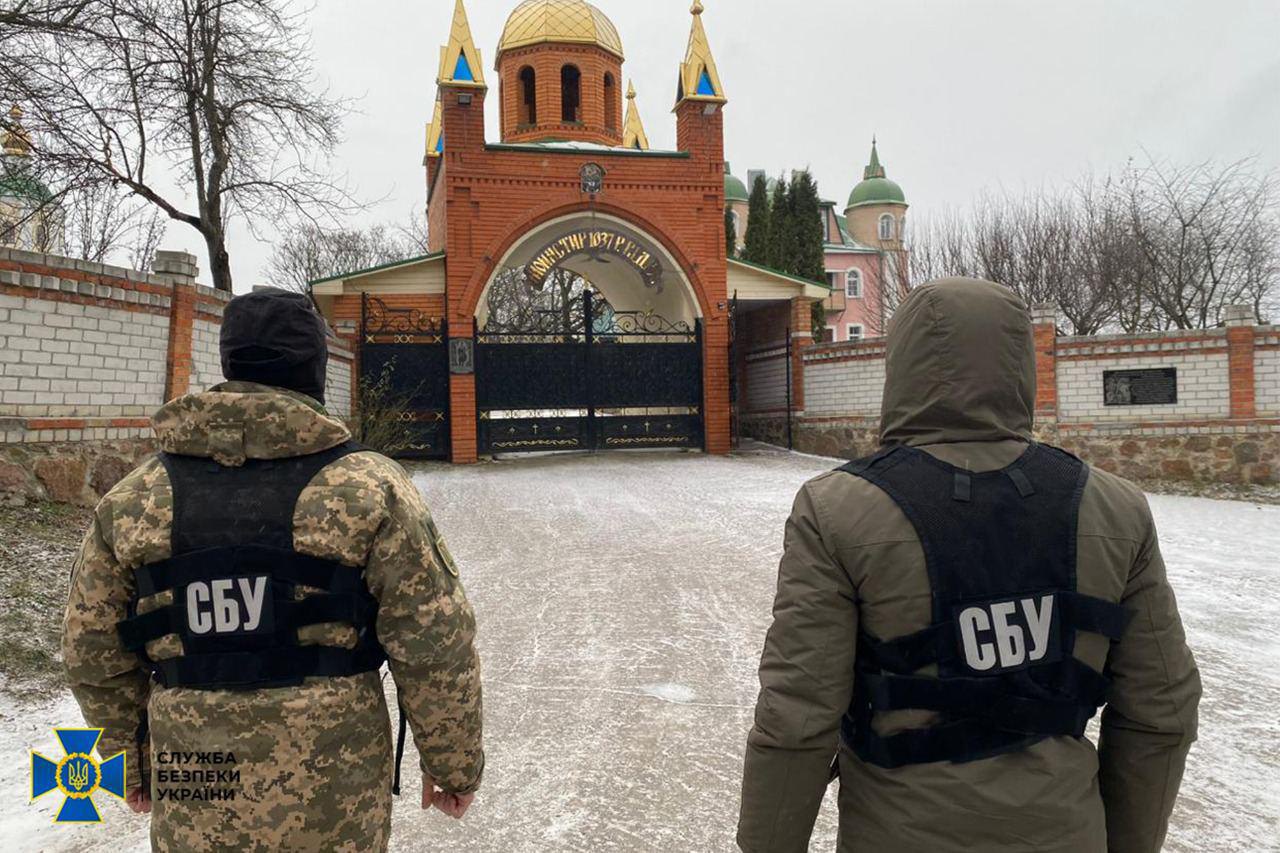
Undoubtedly, the most striking example is the searches in the Chernivtsi diocese, where the security forces expected to find propaganda literature, but found the Russian passport of its head Meletiy and a young choirboy in the cell of his deputy Nykyta. And some "trifles" such as child pornography on computers, which, according to a preliminary expert conclusion, looked like it was filmed on the sport rather than downloaded from the Internet.
By a strange coincidence, two days before that, at a meeting of the Synod in Kyiv, Nykyta was appointed head of the Ivano-Frankivsk See, which includes the only remaining church of the UOC (not of the MP). He was appointed because his predecessor suddenly left a week and a half before the great war and, without explaining anything to anyone, went to Moscow. He had been warned.
It would seem that after such a public disgrace, Nykyta should have resigned from the Ivano-Frankivsk See (not to mention that it is prescribed by the canons).
So much for the expectations.
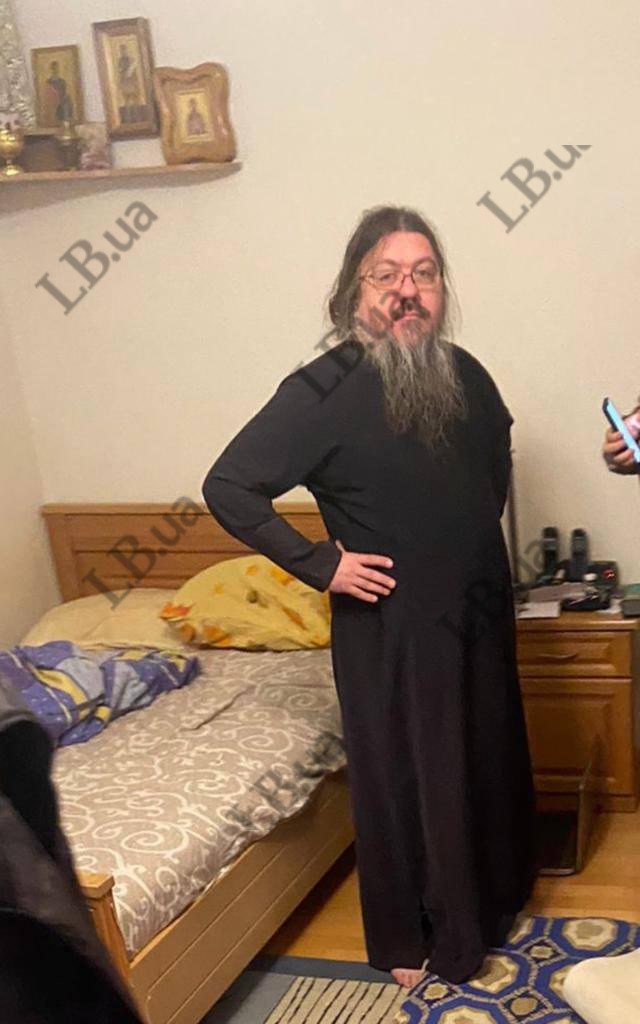
At first, Nykyta recorded a video message to say that he was sleeping peacefully in the cell (at seven in the morning, yes. The monks will understand), and then the SBU broke in, undressed him, put him up against the wall, and he thought that was it – they would shoot him. But they were just taking pictures.
After some time, he churned a new version: that there was some noise, and he just went out into the corridor to check (he went out in his underpants, without a paraman, which he as a monk is not allowed to take off). There was a choirboy running in the corridor, also in his underwear, because something scared him. And so the two of them ran back and forth until they came across the SBU officers, who – unspeakable perverts – began to take pictures.
As a result, Onufriy blessed Nykyta to head Ivano-Frankivsk Region, and four days later the Lavra hosted the celebrations of the 32nd episcopal ordination of Onufriy. A great, very important event, which brought together the supreme clergy from all over Ukraine. And during the solemn service, an event occurred that can be interpreted only in one way. As the fall of the cross from the dome of St. Sophia exactly 40 days before the great war. In short: Onufriy accidentally spilled sacramental wine from one of the chalices on his gown. For a priest it is considered not just bad, but a very bad sign.
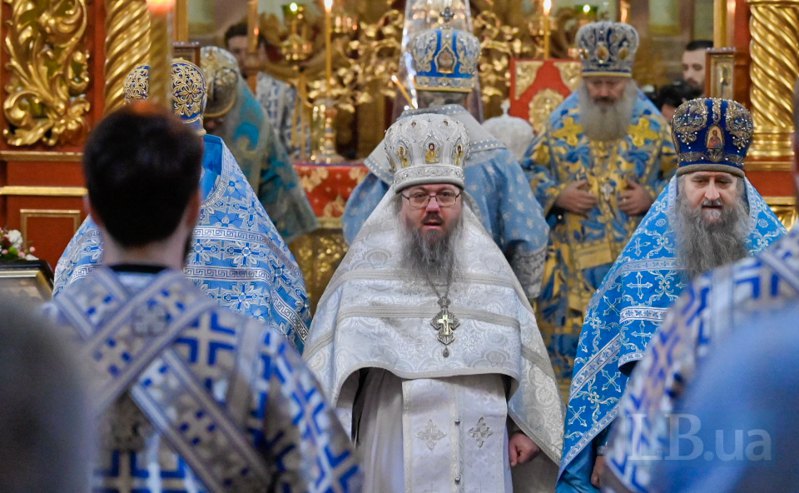
This was preceded not only by Nykyta's ordination. If only...
This was preceded by the fact that the Holy Synod:
- ignored the searches in the Lavra;
- did not condemn, demote or defrock bishops and priests who became traitors: Yelysey of Izyum, Arkadiy of Rovenky, who fled to Russia; Panteleymon of Luhansk, rector of the cathedral from Kherson (also a spiritual adviser for Saldo, who also stole icons in the occupied city); as well as the head of the monastery in Melitopol – all of them sat in the Kremlin at the ceremony of "joining" the new territories. The Synod pretended that it simply did not notice them;
- did not condemn and even supported Ioasaf of Kirovohrad, who was already suspected by the SBU. The same goes for Ionafan of Vinnytsya;
- did not convict Zakhariya from the Lavra (the court assigned him a personal recognizance), after whose service a song "bell ringing floated over Russia" was performed. No, what's wrong about it? True, it wasn't him who sang the song, these were some unpatriotic hooligans who came to sing in front of the miraculous icon.
The Synod took an ostrich position, pretending that all this simply does not concern it, and whoever thinks otherwise "defames the holy church".
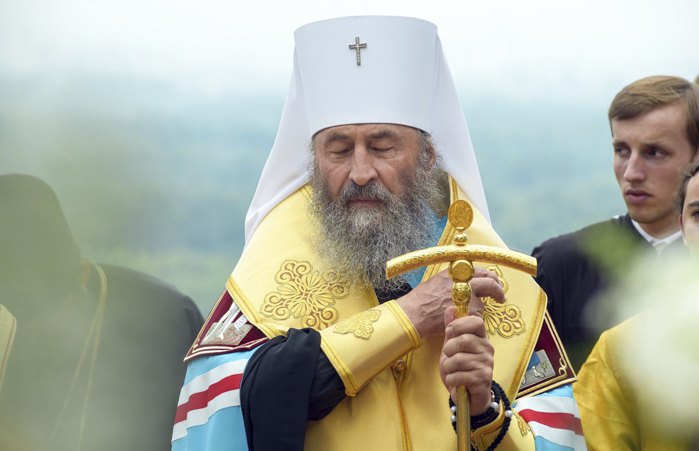
It is very, very reminiscent of Viktor Yanukovych's behaviour during the Maidan, which, in fact, led to the results that everyone knows.
Logically, after all the events, voices about the total ban of the UOC (not of the MP) became even louder. Although Ukraine is a secular state, where this is unthinkable without a direct violation of the Constitution.
However. Latvia is also a secular state. And there it was banned. Yes, at the request of the LOC itself, which asked the state to help it distance itself from Moscow, but the example is still inspiring.
Currently, three relevant bills have already been registered with parliament, but, once again, all three contradict the Constitution.
In order to somehow balance the situation, the state imposed personal sanctions against the listed traitors in cassocks, as well as against the main pro-Russian figure in the UOC (not of the MP), Antoniy (Pakanych), as well as Pavlo (Lebid) and Deacon Vadym Novynsky.
Moreover, on 1 January, the lease of the two main churches of the Upper Lavra, the Holy Dormition and Refectory Churches, expires.
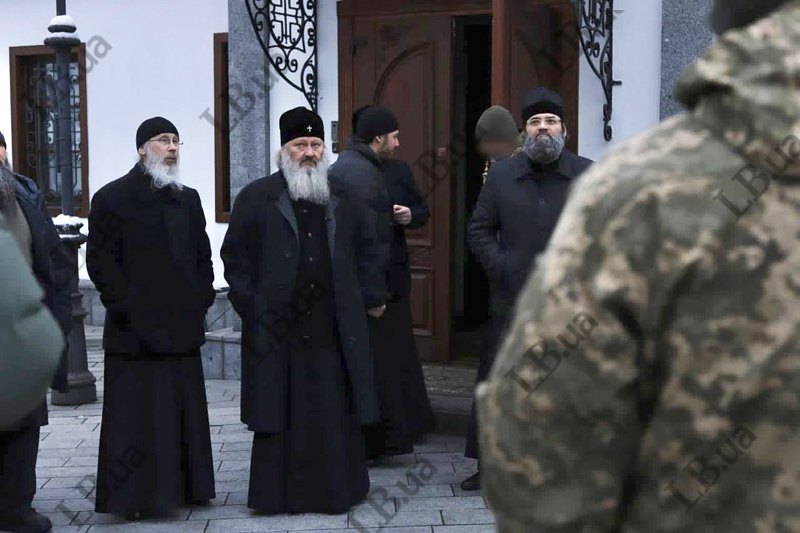
The OCU monastery is still housed in the neighboring Fedosiyivskyy monastery, but the ice is said to have broken (in the past, Azarov's government transferred the Kyiv Pechersk Lavra to the MP for indefinite and free use).
***
Thus, on the eve of 2023, the UOC (not of the MP) is at a crossroads. It is not ready to completely break with Moscow, not ready to own up the mistakes of its own hierarchy, but it has long been not about religious matters, but about national security.
In addition to the above, it is worth mentioning the decision of the Constitutional Court (regarding the relevant law of 2018) on the need for the Moscow church to change its name in order to identify its affiliation with the administration centre in the territory of the aggressor state. Of course, the UOC (not of the MP) immediately stated that this does not concern it and it is not going to do anything. Thus, it drove itself into a dead end even deeper.
Yes, nothing ever happens quickly in the Church, but something tells me that in 2023 the fate of the Moscow branch of Ukrainian Orthodoxy will be finally decided. And the chances for a full-fledged Orthodox dialogue and – in the future – a great unification are optimistically growing.
